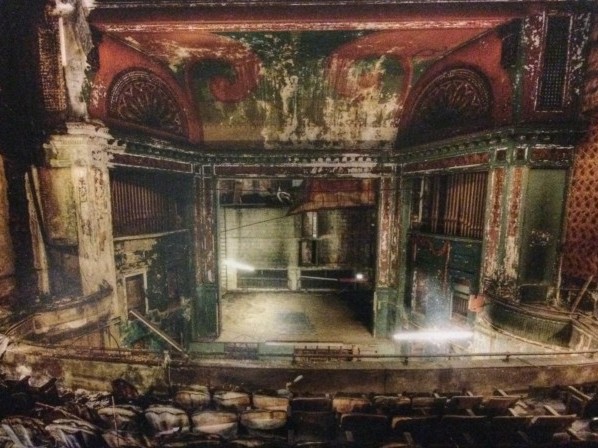On Tour: Wilmington, DE

For my first stop on On Screen / In Person, I stayed with my grandparents, Ray and Arleen Higgins. Their pleasant home in leafy Newark, Delaware is a testament to what good jobs can get you. Ray worked most of his life as a high school teacher, in a good union. Arleen worked for Gore, an innovative tech company co-owned by its employees, without hierarchies or bosses. While we watched Ken Burns’ new series on the Roosevelts together on PBS, she told me her father, a local carpenter, thought FDR was “the greatest man who ever lived” for the helping hand he extended to the common man. He was buried with his beloved union card in his jacket pocket.
That’s one side of Delaware politics. At our screening in nearby Wilmington, audience members told me about another Delaware, where xenophobic vigilantes patrol for suspected “illegals” with expired out-of-state plates (the undocumented can’t register cars in this state) and organize boycotts of immigrant businesses. One attendee, the principal of a majority-Hispanic public school, would like to see the film’s message of empowerment reach the immigrant parents she serves, who feel afraid even to attend a PTA meeting. But much of this fear seems justified here. I learned that defendants in Delaware courthouses who require translation services are shuttled directly into the hands of ICE, and shipped off to a detention center where their families can’t reach them.
Most new immigrants are flowing to the “slow and low” southern counties, to perform the brutal work of slaughtering and de-boning chickens for very low wages, without the protection of a union. Bryant Garcia drove all the way up from Georgetown, where his La Esperanza Community Center works to empower these new arrivals, and he sees some signs of hope — the Hispanic community there is sticking together, becoming more organized and visible.
Up here in Wilmington, a scrappy city struggling with poverty in the shadow of credit card company headquarters, the gleamingly renovated Queen Theater is part of an effort to revitalize a downtown marred by neglect since the 1968 riots sent white residents packing for the suburbs. Though turnout was modest on this Wednesday night, the audience included city councilwoman Maria Cabrera, an attorney from the Community Legal Aid Society, and other influential Delawareans, and I was glad to spend the evening chatting with them over a delicious free dinner. Next stop: Newport News!










